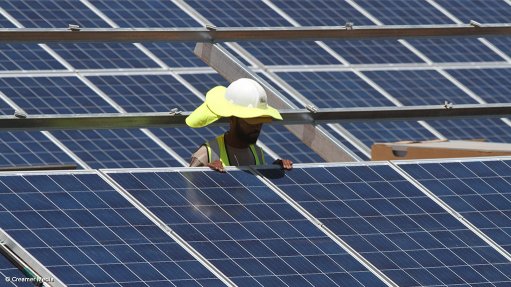
A new €15-million initiative has been launched to provide research and technical support for “catalytic” just transition projects in South Africa’s Mpumalanga province, currently the centre of South Africa’s coal industry and where 22 GW of coal-fired power capacity is scheduled for retirement before 2035.
Dubbed Just SA, the ‘Just Transition to a Decarbonised Economy for South Africa’ project is being funded by the German government’s International Climate Initiative and will be implemented over a five-year period.
The project’s political partner is South Africa’s Department of Forestry, Fisheries and the Environment and Minister Barbara Creecy attended its official launch in Johannesburg on Tuesday.
Speaking at the event, Creecy indicated that Just SA was aligned with the $8.5-billion Just Energy Transition Partnership (JET-P) that the country had concluded with Germany, France, the European Union, the UK and the US and would assist in identifying “transition pathways in the province of Mpumalanga”.
She argued that climate justice had to involve affected workers and communities from the outset and also had to ensure that those most vulnerable to the transition were direct beneficiaries of the transition projects.
There was also growing pressure on South Africa, she acknowledged, to demonstrate visible progress on its JET-P, which was the first such partnership to be concluded globally, given that similar climate finance partnerships had since been struck with Indonesia and Vietnam.
“Having met with some of the officials involved in the Indonesia partnership, it has made me realise that South Africa has to get its act together and get its act together quickly, because now there's going to be competition for international financing,” Creecy said, indicating that South Africa needed to attract $98-billion in transition-related investment over the coming five years to support its energy transition and to tackle debilitating loadshedding.
German Ambassador to South Africa, Lesotho and Eswatini, Andreas Peschke, said the transition of South Africa’s energy system presented an opportunity for job creation not only in the renewable-energy field but also for alternative livelihoods in tourism, agriculture and the rehabilitation of Mpumalanga’s natural resources.
“The transition towards more modern sources of energy may also help, in my opinion, to ease the current energy crisis.
“In fact, it may be not only the most sustainable, but maybe also the fastest way to bring new energy to the grid,” Peschke said in a speech, during which he addressed the audience in both English and isiZulu.
Just SA project director Navina Sanchez, of German development agency GIZ, said the projects would be implemented in a consortium with six South African partners, including the Mpumalanga Green Cluster Agency, GreenCape, Trade and Industrial Policy Strategies, the National Business Initiative, the Youth Employment Service and WWF.
“The project will provide targeted regional and local support to Mpumalanga . . . and focuses also on catalysing and unlocking more infrastructure and economic development in the province and will work with local communities,” Sanchez explained.
Mpumalanga Green Cluster CEO Nkosinathi Nkonyane indicated that he saw immediate opportunity to catalyse increased agricultural activity in the province, which was already one of the country’s “bread baskets”, as well as attract wind and solar investment on the back of Mpumalanga’s existing grid infrastructure.
While access to grid infrastructure had emerged as a significant constraint to integrating new renewables generation in the Cape provinces, it is estimated that Mpumalanga has about 5.5 GW of available grid capacity.
It is likely that the next public renewables procurement bid window will direct bidders to areas with residual grid capacity, including Mpumalanga, KwaZulu-Natal, Limpopo, Gauteng, North West and the Free State.